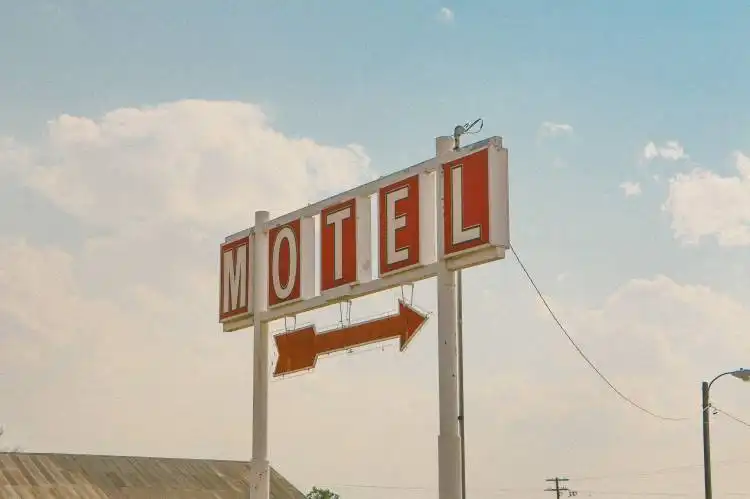Start a Billiards Hall Business
Picturing a World of Stripes, Solids, and Trick Shots: Starting Your Own Billiards Hall Business
| Updated


BILLIARDS HALL BUSINESS
If you harbor a love for cue sports and seek to offer a chill space for players to knock around some billiard balls, a Billiards Hall Business is a great idea for you. This venture operates a venue where individuals or groups can come, relax, enjoy a drink or two, and play pool in a friendly, lively atmosphere. It involves not only setting up an assortment of high-quality pool tables, but also creating a convivial social environment that keeps customers coming back for another round. It's a whole new world of stripes, solids, and trick shots.
Jump to Business Plan
RELATED BUSINESS IDEAS
Browse ALL Hospitality & Leisure Ventures Business Ideas
Discover Your Perfect Domain
Unlock the door to your online success with our hand-picked selection of premium domain names. Whether you're starting a new venture or rebranding an existing one, the right domain can set the tone for your digital presence. Browse through our curated list, each with its unique potential to enhance your brand's visibility and credibility.
BILLIARDS HALL MINI BUSINESS PLAN
This a quick reality check to help you identify the strengths and weaknesses of your business concept before you dive in.
Expected Percent Margin:
- Gross Margin: 65-75%
- Net Profit Margin: 15-25%
Earnings Expectations:
- Daily Earnings: $300 - $600
- Weekly Earnings: $2,100 - $4,200
- Monthly Earnings: $9,000 - $18,000
- Annual Earnings: $108,000 - $216,000
Actions to Hit Those Numbers:
Infrastructure:
- Initial Investment: Requires upfront capital of around $80,000 - $100,000 to equip the establishment with sufficient pool tables, seating arrangements, and entertainment systems.
- Lease/Rent: Consider a location frequented by your target demographic. Typically, stay below 15% of your expected monthly sales.
Marketing and Customer Acquisition:
- Promotions & Events: Regular tournaments, memberships, and happy hour discounts to attract and retain customers.
- Social Media: Regular updates on Facebook, Instagram, and Twitter.
Sales and Customer Experience:
- Staffing: Must employ bartenders, janitors, part-time staff, and floor managers. The customer-friendly staff will help foster a welcoming environment.
- Inventory: Stock a diverse selection of beverages and light snacks.
Cost Control:
- Utilities: Budget around $500-$1000 per month for electricity, water, and maintenance.
- Licensing: Budget for liquor license, music license and pool hall license.
Business Operations:
- Open hours: Depending on local norms, a pool hall might stay open from early evening until 2-3 in the morning.
- Transaction Volume: With a half-dozen pool tables occupied at a rate of $10/hour, aim for an average daily transaction of ~30-60.
Remember, these are generalized estimates. The real numbers will depend heavily on local conditions, licensing costs, competition, and your ability to market effectively and manage costs. Always consult a financial advisor before making significant business investments.
NOT WHAT YOU HAD IN MIND? Here are more ideas



Browse ALL Hospitality & Leisure Ventures Business Ideas
Grab Your Business Website Name
Before you get caught up in the whirlwind of setting up your business, invest in a domain name. It's a small but significant step that lays the foundation for your brand and makes it easier for customers to find and trust you. Just like you wouldn't build a house without securing the land first, don't build a business without securing your domain name.
"Why? Can't that wait?" Here's why it shouldn't
Step 1: Determine if the Business is Right Endeavor
Breakdown of Startup Expenses
Before starting a billiards hall business, it is important to understand the costs associated with it. This includes the cost of the building, the cost of the equipment, the cost of the tables, the cost of the cues, and the cost of any other necessary items. It is also important to consider the cost of any licenses or permits that may be required. Additionally, it is important to factor in the cost of advertising and marketing, as well as the cost of insurance. It is important to have a good understanding of the startup costs before committing to the business.
Breakdown of Ongoing Expenses
In addition to the startup costs, it is important to understand the ongoing expenses associated with running a billiards hall business. This includes the cost of utilities, the cost of supplies, and the cost of labor. It is also important to consider the cost of any repairs or maintenance that may be necessary. Additionally, it is important to factor in the cost of any taxes or fees that may be associated with the business. It is important to have a good understanding of the ongoing expenses before committing to the business.
Examples on Ways to Make Money
There are a variety of ways to make money with a billiards hall business. This includes charging an hourly fee for use of the tables, selling food and drinks, hosting tournaments, and offering lessons. Additionally, it is possible to make money by selling merchandise, such as cues, balls, and other accessories. It is important to have a good understanding of the potential sources of income before committing to the business.
Step 2: Name the Business
When it comes to naming a business, it is important to pick something that is memorable and that will stand out from the competition. It is also important to make sure that the name is not already taken by another business or trademarked. Additionally, it is important to consider the type of business and the target audience when coming up with a name. For example, a billiards hall business should have a name that is related to billiards or pool in some way. It could be something that references the game, such as “The 8-Ball” or “The Pool Palace”. It could also be something that is more abstract, such as “Stroke of Luck” or “The Break Room”. It is also important to consider the domain name for the website and the availability of social media handles when picking a name. Once a name has been chosen, it should be trademarked to protect it from being used by another business.
Step 3: Obtain Necessary Licenses and Permits
In order to open and operate a billiards hall business, there are certain licenses and permits that must be obtained from the local, state, and federal government. Depending on the location of the business, the types of licenses and permits required may vary. Generally, a business license, a zoning permit, and a health permit are needed. Additionally, depending on the type of billiards hall business, a liquor license may be necessary.
Cost of Licenses and Permits
The cost of licenses and permits can vary greatly depending on the location of the business. Generally, the cost of a business license is relatively low, while the cost of a liquor license can be quite high. Additionally, the cost of a zoning permit and a health permit can vary depending on the size and scope of the business.
How to Obtain Licenses and Permits
The process of obtaining the necessary licenses and permits can be quite complex and time consuming. Generally, the first step is to contact the local government to determine what licenses and permits are required for the business. Once the necessary licenses and permits have been identified, the business owner must complete the necessary paperwork and submit the required fees. Additionally, the business owner may need to provide additional information or documents in order to obtain the licenses and permits.
Time Frame for Obtaining Licenses and Permits
The time frame for obtaining the necessary licenses and permits can vary greatly depending on the location of the business. Generally, the process can take anywhere from a few weeks to several months. Additionally, the process may be expedited if the business owner is able to provide all of the necessary documents and information in a timely manner.
Step 4: Find a Suitable Location
When selecting a location for a billiards hall business, there are several factors to consider. First, the location should be easily accessible to potential customers. It should also have adequate parking and be in a safe area. Additionally, the size of the location should be large enough to accommodate the number of pool tables and other amenities that the business will offer. Finally, the rent should be affordable and in line with the expected income of the business.
Research Local Regulations
Before signing a lease, it is important to research local regulations that may affect the business. This includes zoning laws, building codes, and health and safety regulations. Additionally, research any permits or licenses that may be required to operate a billiards hall business in the area. It is also important to check with local authorities to ensure that the business is in compliance with all applicable laws and regulations.
Negotiate a Lease
Once a suitable location has been identified, it is important to negotiate a lease with the landlord. This should include the length of the lease, the amount of rent, and any other terms and conditions. It is also important to ensure that the lease includes a clause that allows the business to terminate the lease if the business is not successful.
Secure Financing
Once a location has been identified and a lease negotiated, it is important to secure financing for the business. This can include a loan from a bank, an investment from a venture capitalist, or a combination of both. Additionally, it is important to research any government grants or incentives that may be available to help finance the business.
Step 5: Purchase Necessary Equipment
When starting a billiards hall business, there are certain pieces of equipment that are necessary for the business to function. This includes pool tables, cues, racks, chalk, and other accessories. It is important to purchase quality equipment that will last and provide a good experience for customers. Additionally, it is important to purchase enough equipment to accommodate the number of customers that the business is expecting.
Where to Purchase
When purchasing the necessary equipment, it is important to shop around to find the best deals. This can include looking at local retailers, online retailers, and even used equipment. It is important to compare prices and quality to ensure that the business is getting the best value for their money. Additionally, it is important to ensure that the equipment is up to safety standards.
Financing Options
When purchasing the necessary equipment, it is important to consider financing options. This can include taking out a loan, using a credit card, or using a business line of credit. It is important to consider the interest rates and repayment terms when selecting a financing option. Additionally, it is important to consider the impact of the financing on the cash flow of the business.
Insurance
When purchasing the necessary equipment, it is important to consider insurance. This can include purchasing insurance to cover the cost of the equipment in case of theft or damage. Additionally, it is important to consider liability insurance to cover any potential legal costs associated with the business.
Step 6: Hire and Train Employees
Types of Employees Needed
When opening a billiards hall, it is important to hire the right employees who are knowledgeable about the game and can provide excellent customer service. Depending on the size of the business, you may need to hire a manager, cashiers, bartenders, wait staff, and maintenance staff. It is also important to consider hiring security personnel to ensure the safety of customers and employees.
Training Employees
Once the right employees have been hired, it is important to provide them with the necessary training. This training should include how to properly use the equipment, how to handle customer service issues, and how to handle any disputes that may arise. It is also important to provide employees with the necessary safety training, such as how to properly lift heavy objects and how to properly clean and maintain the equipment. Additionally, it is important to provide employees with the necessary knowledge of the game, such as the rules and regulations, so they can properly assist customers.
Step 7: Market the Business
When it comes to marketing a billiards hall business, there are a variety of strategies that can be used. Examples of marketing strategies include creating a website, using social media, and utilizing local advertising. Creating a website is a great way to reach potential customers and provide them with information about the business. Social media can also be used to reach potential customers and can be used to create a community of followers. Local advertising can also be used to reach potential customers in the area.
Promotions
Promotions are another great way to market a billiards hall business. Examples of promotions include offering discounts on certain days, offering special events, and offering discounts for groups. Offering discounts on certain days can be a great way to attract customers and encourage them to come back. Special events can also be used to attract customers and can be used to create a sense of community. Offering discounts for groups can also be a great way to increase business, as it encourages people to come in with their friends or family.
Networking
Networking is another important aspect of marketing a billiards hall business. Networking can be done by attending local events, joining local business groups, and connecting with other businesses in the area. Attending local events can be a great way to meet potential customers and create relationships with them. Joining local business groups can also be a great way to meet potential customers and build relationships. Connecting with other businesses in the area can also be a great way to build relationships and create partnerships.
Advertising
Advertising is another important aspect of marketing a billiards hall business. Examples of advertising include print ads, radio ads, and television ads. Print ads can be used to reach potential customers in the area and can be used to create awareness of the business. Radio ads can also be used to reach potential customers and can be used to create a sense of community. Television ads can also be used to reach potential customers and can be used to create a sense of excitement about the business.
Step 8: Set Up Accounting System
When setting up an accounting system for a billiards hall business, there are several types of accounting systems to consider. The most common are cash-basis accounting, accrual-basis accounting, and hybrid accounting. Cash-basis accounting is the simplest and most straightforward, as it only records transactions when cash is exchanged. Accrual-basis accounting is more complex, as it records transactions when they occur, regardless of when cash is exchanged. Hybrid accounting is a combination of the two, and is the most popular choice for small businesses.
Choosing the Right System
Choosing the right accounting system for a billiards hall business is important, as it will determine how the business is managed and how taxes are paid. It is important to consider the size of the business, the type of transactions that will be made, and the amount of time and resources available to manage the system. It is also important to consult with a professional accountant or tax advisor to ensure that the system chosen is compliant with local and state laws.
Implementing the System
Once the right accounting system has been chosen, it is important to implement it properly. This includes setting up the necessary software, creating accounts, and entering transactions. It is important to ensure that all transactions are accurately recorded, as this will ensure that the business is compliant with local and state laws. Additionally, it is important to ensure that the system is regularly updated and maintained, as this will ensure that the business is running smoothly and efficiently.
Step 9: Establish Policies and Procedures
Policies and procedures are essential for any business, and a billiards hall is no exception. It is important to establish policies and procedures that will ensure the safety of both customers and employees. Examples of policies and procedures that should be established include rules for customers such as no smoking, no alcohol, and no fighting. It is also important to establish rules for employees such as dress code, hours of operation, and customer service expectations. Additionally, it is important to establish policies and procedures for the maintenance and upkeep of the billiards hall, such as cleaning and sanitizing the tables, replacing worn out cues, and ensuring the safety of the equipment.
Post Policies and Procedures
Once the policies and procedures have been established, it is important to post them in a visible area of the billiards hall. This will ensure that customers and employees are aware of the rules and expectations. Additionally, it is important to make sure that employees are trained on the policies and procedures and that they understand the consequences of not following them. This will help to ensure that the billiards hall is a safe and enjoyable environment for everyone.
EXPLORE MORE CATEGORIES
Browse ALL Business Idea Categories
TAKE THE NEXT STEPS








